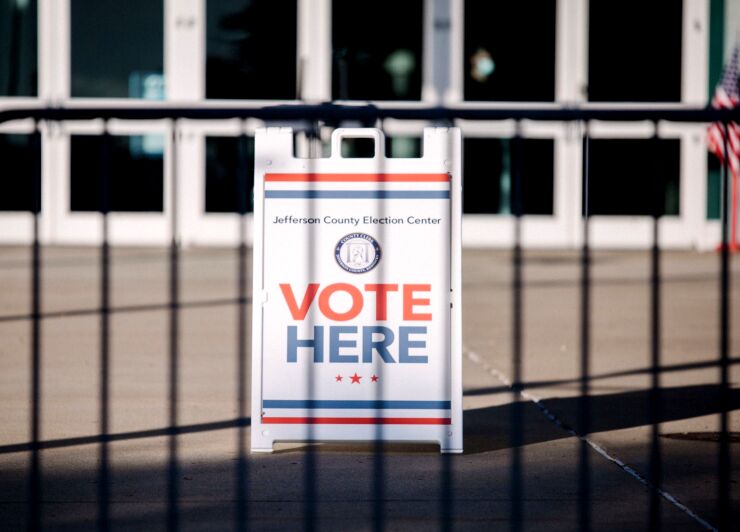With the United States heading into what looks to be particularly contentious presidential election, CPA financial planners have just one piece of heartfelt advice for their clients: Ignore it.
At least, that is, in terms of their financial plans.
Most of the members of Accounting Today's

"Historically, presidential elections increase anxiety among investors," explained Charlene Wehring, managing member at DBHW Wealth Management. "This is due to the (potential) changes in leadership and the hyper-reporting by news and social media outlets. Unfortunately, bad news sells better than good news. Even the most prepared investors may need help with their anxiety to avoid poor decision-making. We will be the voice of reason in those times of uncertainty."
Keeping clients calm is a priority for Shaw Pritchett, president and CEO of Jackson Thornton Asset Management as well. "We feel that client perception of the impact of the election could become an issue, as they may want to abandon their plans to stay the course, seeking safety from a potential win by the party they do not prefer," he noted. "With that said, we know that history has shown that the stock market will continue to grow long term no matter which political party is in control. Our job is to keep clients and their plans in place during this election cycle and offer them reassurance that their outcome will be favorable over the long term — regardless of who wins."
(Accountants are evenly split in their
A number of firms said that they are preparing in advance for exactly that kind of client anxiety. "In the short term, we expect some potentially impulsive phone calls or desired decisions by clients," said Maddi Keegan, director of ops and a financial advisor at Frazier Financial Advisors. "We have many different resources and collateral that speaks to the long-term effects of presidential candidates and we know there isn't actually a real long-term impact, so we are preparing to take phone calls and help talk clients off a ledge from making rash decisions."
Similarly, SignatureFD is working to mitigate any undue influence the race may have through a steady stream of facts and information. "We provide regular communication to our clients through weekly newsletters, and we host weekly call-in briefings, helping ensure our clients stay informed about market fluctuations, economic indicators, and pertinent headlines," explained marketing and communications manager Samantha Geier. "By keeping our clients abreast of developments and offering guidance tailored to their individual circumstances, we aim to instill confidence and maintain alignment with their long-term financial objectives."
Short-term volatility and long-term change
The planners among our Wealth Magnets were quick to acknowledge that the race and the final election itself may cause some short-term market fluctuations — they just don't think that should cause clients to stray from their plans.
"Although the uncertainty associated with election outcomes can contribute to periods of volatility, those tend to be relatively brief and don't have a lasting impact on market returns," said John Lesser, group managing partner at Plante Moran Financial Advisors.
(See our 2024 list of
For the small subset of clients who may be immediately impacted by those fluctuations, Maner Wealth has taken proactive steps to insulate them. "For those who are actively taking income from their portfolios, we have already moved the next one to five years' worth of distributions to a cash equivalent to remove the volatility of the election from their income plan," said chief wealth officer Michael Nordmann. "For those still in the accumulation phase we have communicated they should expect heightened volatility."
While CPA financial planners don't want clients to make any short-term election-driven mistakes, that doesn't mean they aren't paying close attention themselves.
"While the election itself should have little impact on our clients' financial plans, as polarizing as it is expected to feel, the outcome could, depending on proposed income tax rates, wealth and transfer tax changes, and other changes to the Internal Revenue Code," said Kristy McCullough, managing director of wealth management at Mowery & Schoenfeld Wealth Management. "We will be closely monitoring the regulatory agendas of the next administration, ensuring our clients' long-term financial plans build in any necessary benefits and avoid any disadvantages."
Chris Dhanraj, managing principal of investments at CliftonLarsonAllen Wealth Advisors, highlighted some of the areas to be aware of: "Election years typically see a renewed emphasis on potential regulation and policy changes, and this year is no different, with focus on potential changes in tax and estate policy that are at risk of sunsetting at the end of 2025," he said. "We are actively working with our clients to navigate potential increases in individual tax rates along with decreases in the estate tax exemption level in the context of their current and future financial plans."
For all the difficulty of balancing between keeping clients calm and on track, and preparing for potentially significant regulatory changes, the election may end up creating opportunities for financial planners, according to Napier Financial president Alex Weiss.
"The election will add confusion," he said, "but in confusion people will look for holistic advice, and it should help our business grow," he said.





